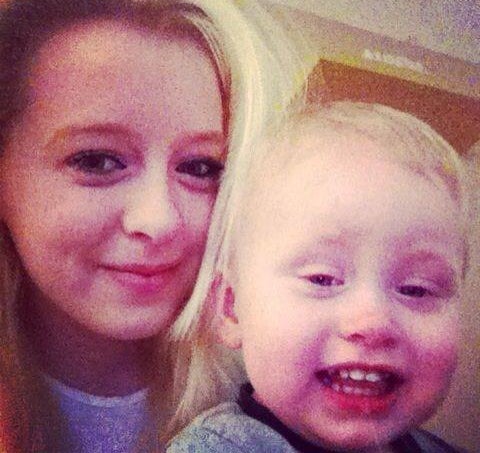Free to kill: At least 21 men released on bail went on to attack women
Exclusive: Fears the ‘system isn’t fit for purpose’ as data reveals shocking number of men released on bail who go on to kill women

At least 21 men were left free to kill women after being released on bail over the course of a three-year period, figures have revealed.
Campaigners have said “the system isn’t fit for purpose” and called for more to be done to protect women and girls after the shocking figures were uncovered.
Sobering data from the Femicide Census showed the horrifying death toll for UK women whose killers were released on bail between 2020 and 2022.
At least six of those men had been arrested on suspicion of offences against women before going on to kill their accusers, The Independent understands.
The research shows that a further 14 killers attacked their female victims while released from prison on licence in the same two-year period – including Zara Aleena’s killer Jordan McSweeney. The career criminal was released from the high-security HMP Belmarsh – where he was serving time for carrying a weapon, criminal damage, and racially aggravated public order offences – just nine days before Aleena’s murder.
Meanwhile, 16 men were subject to injunctions such as domestic violence prevention orders when they killed – sparking debate over the effectiveness of enforcement.
Dr Karen Ingala Smith, co-founder of the Femicide Census, said: “We are concerned about the worth of processes like bail, licencing and domestic violence prevention orders [DVPOs, sometimes referred to as injunctions].
“For example, a DVPO is a court order that is supposed to prevent someone from doing something. Do we really expect men who are highly abusive and dangerous to pay attention to that? To a court order? It’s not as if they don’t already know that violence and abuse are wrong.
“We don’t need a court order to tell us not to kill someone; similarly, a man who has decided to kill a woman isn’t going to be prevented from doing so because a court order exists. The system isn’t fit for purpose.”

Cases include that of Emma Baillie, 26, who was strangled and repeatedly struck with a knife by her abusive partner Peter Duffy in Coatbridge, Scotland, in 2022.
Duffy, 48, who also went on to kill his brother in a separate attack, was subject to three bail orders at the time – including a requirement not to approach Ms Baillie.
Last month, her stepmother Carol Austin said he should never have been released, adding: “It is very worrying to know there are serious criminals walking the streets when they should be behind bars at the time of their arrest.”
Duffy was sentenced to 30 years in prison and warned that he may never be released.
Bethany Vincent, 26, and her son Darren (known as DJ), aged nine, were stabbed to death by her “manipulative and controlling” ex-partner Daniel Boulton at their home in Louth, Lincolnshire, in May 2021.
A court heard Ms Vincent had a restraining order against domestic abuser Boulton, but that he “repeatedly” broke it and walked 28 miles to carry out the brutal murders. He was jailed for life with a minimum term of 40 years.
Christopher McGowan tortured his girlfriend Claire Inglis before killing her at her flat in Stirling in November 2021. The violent offender, who had 39 previous convictions, had been bailed to live with Inglis, 28, and her young child, two months before he murdered her.
He beat and strangled her before burning her with a lighter and pushing a wet wipe down her throat in an attack that was described as “beyond sadistic”. He was jailed for 23 years.
Speaking after the case, Inglis’s father Ian said: “He should never, ever have been put in her flat with my grandson and Claire – not with the criminal record he had.”
More recent cases – which are not included in the figures – include that of mother-of-two Hayley Burke, 36, who was shot in the head by her ex-partner Jacob Cloke, who is said to have held her at gunpoint and pulled the trigger during a stand-off with police in May 2023.
Cloke, 29, was facing charges of multiple attacks on Burke but had been bailed with an order not to contact her or enter Dartford, where she lived. He also suffered gunshot wounds and died in hospital days later.

Abuser Marcus Osborne, 35, was last month handed a rare whole-life order for stabbing his ex-partner Katie Higton 99 times in a “ferocious and merciless” attack in May 2023, which he committed when he was given bail after being accused of domestic violence.
He also killed Steven Harnett, 25, a man Higton was dating, and raped another woman before inviting neighbours in Huddersfield to look at their bodies.
Five days earlier, Higton had reported Osborne’s abuse to police, telling officers he had threatened to “slit her throat if she said what he had done” and that “if she ever got a boyfriend he would kill them both”.
Harriet Wistrich, director of the Centre for Women’s Justice (CWJ), told The Independent: “These are shocking figures over a two-year period, and reveal a failure by the authorities to adequately assess risk, and a failure by police/probation to enforce or properly supervise offenders on bail or on licence, and to enforce non-molestation orders.”
She said issues around the breaching of bail conditions and court orders were raised in a police super-complaint submitted by the CWJ in 2019.
She urged the Ministry of Justice to focus on only releasing the lowest-risk offenders as part of the ongoing early release scheme, introduced in an effort to moderate the prison overcrowding crisis. She added: “Those who present a serious risk of violence towards women need to be identified and contained, or effectively supervised if in the community.”
Amy Bowdrey, policy and public affairs officer at domestic abuse charity Refuge, said each death was a tragic loss of life.
“It is essential that the police and other services understand the dynamics of domestic abuse, including coercive control, and recognise the life-threatening risk abusive behaviours pose to those experiencing it,” she said. “We need immediate and effective police intervention in domestic abuse cases so that no more women’s lives are tragically cut short.”
A government spokesperson said: “Bail decisions are made by the police and independent judges, but anyone who commits a crime while on bail rightly faces a tougher sentence. Suspects can also be electronically tagged and given strict conditions such as curfews, and we have strengthened bail requirements with Kay’s Law to protect victims.”
This story has been updated to clarify that 21 men killed on bail during a three year period, not two.
Bookmark popover
Removed from bookmarks